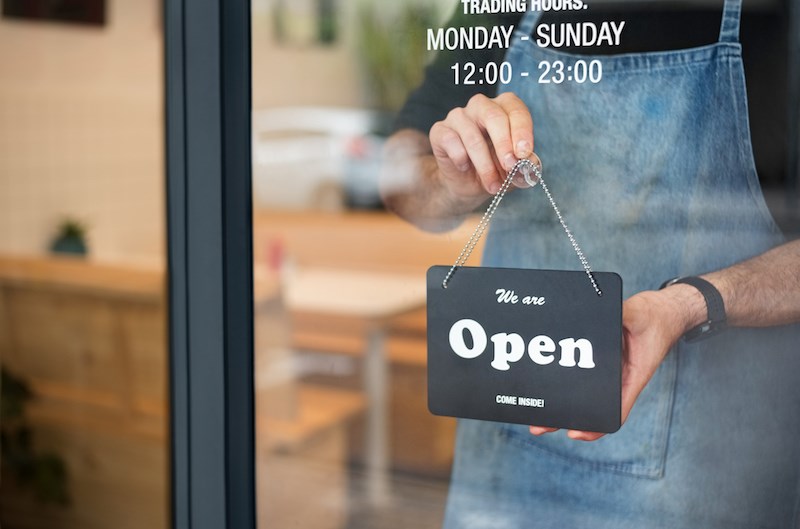Ontario restaurants are open at half-capacity, a much-needed reprieve from Covid’s devastating effects on the hospitality industry. However, staffing issues, applying for support programs, and the battle to return ledgers to the black continue to take a toll on many owners.
Jeff Gauthier owns and operates Lulu’s Bar and Grill in downtown Callander. Originally the building housed the Callander Hotel, and for “well over a hundred years,” the place has operated as a bar and restaurant.
For forty-one year’s Gauthier’s family has run the restaurant, and I’ve “never seen anything like it,” he said, speaking of the effects Covid has had on his business. “We’ve been through everything, and this takes the cake.”
Gauthier, like so many other restaurant owners, has applied for government programs. After the first closure, many restaurants received $40,000, of which $10,000 was forgivable and the remainder was a loan.
“It helps you stay afloat, but you don’t want to touch it,” Gauthier said, noting his business is in the enviable position of not having to access that money.
“There will come a time when the government is going to come looking for their money,” he said, “and you better have it.”
“When you’ve been in business as long as we have, who wants to deal with a loan?”
Staffing is also an issue for many establishments. The closures deterred many from the industry, and the layoffs are tempting others to find different lines of work. Attracting and retaining hospitality staff was an issue before the pandemic, noted the Ontario Restaurant Hotel and Motel Association.
“The workforce issue was the number one concern for hospitality,” the association explained. The pandemic “created a much greater need” for workers, an issue adding “enormous pressure” to the industry at large.
See: Quebec restaurants are reopening, but some former workers don't plan to go back
The association is lobbying the government to expand the Ontario Immigrant Provincial Nominee Program “to include cooks as a skill position to keep international students working in Ontario while they earn merit points to obtain” Canadian citizenship.
They also plan to advocate to youth “to promote and encourage individuals to seek professional careers in the hospitality industry.”
A dwindling labour force makes it difficult for some restaurants to earn even when they are allowed to serve guests, a significant problem given the amount so many businesses have already lost.
Dean Sharp owns Myrt’s Family Restaurant in Mattawa, and he estimates he’s lost 85 to 95 per cent of his revenue this past year. To get through, he’s applied for the federal wage subsidy support, “and we haven’t received anything for over two months,” and the business is not eligible for the rent subsidy.
He admits both the provincial and federal support programs “are not nearly enough, and as I said, we are not eligible for some.”
“I feel it’s made to be quite difficult to actually be eligible,” Sharp added. And when you are eligible, the programs can be a “huge nightmare to apply for,” Gauthier said, “very time consuming, very confusing” and “as soon as you get used to doing it one way, they change it again.”
Both are glad to re-open to guests—half-capacity is better than closed—and anticipate more hospitable times ahead. With the uncertainty presented by new Covid variants, the future may bring more losses, more paperwork, and more grief to a very troubled industry.
“It's difficult to stay ahead when we get locked down so often,” Sharp said.
The first restaurant restrictions took effect in March 2020 allowing only takeout or delivery. The federal government responded with a “comprehensive set of measures,” to “support Canadian businesses” through the pandemic, the Government of Canada explains on their website, including the emergency wage subsidy, emergency rent subsidy, the recovery hiring program and the tourism and hospitality recovery program.
See: Restrictions loosen today, here's what that means
Ontario’s government also plans to re-introduce a Covid-19 small business support grant, but “it falls well short of the needs of the industry,” Restaurants Canada, “the voice of foodservice” mention on their website.
“We need targeted, significant funding that will keep businesses afloat” during closures, the organization emphasizes. “Businesses need to pay bills now.”
Restaurants Canada urges the province to ban evictions “so that restaurants are not locked out of their buildings” and to “defer HST remittances to help businesses pay their bills now.”
Most restaurants are “taking on even further debt in the face of the Omicron wave,” and Restaurants Canada welcomed the extension of the Canada Emergency Business Account (CEBA) loan repayment deadline.
The repayment deadline has been extended by one year to December 31, 2023 “for all eligible borrowers in good standing,” and outstanding loans will accrue five per cent interest annually, beginning January 1, 2024. Loans are fully due on the last day of 2025.
“Small businesses, job creators and the entrepreneurial spirit are the backbone of Ontario’s economy,” said Vic Fedeli, Minister of Economic Development. “Unfortunately, these businesses have been some of the most impacted by COVID-19, and many continue to struggle.”
Lisa MacLeod, the Minister of Heritage, noted the culture and hospitality industries—responsible for generating “more than $76 billion” annually to the province—“have been hit first, hardest, and are expected to take the longest to recover from the pandemic.”
To help, the province is cutting wholesale liquor prices and “making it easier” to create and extend patios. Licenced restaurants can also include alcohol as part of a takeout or delivery order.
These measures help, but restaurants have lost so many working days the road to recovery seems never-ending.
David Briggs is a Local Journalism Initiative reporter who works out of BayToday, a publication of Village Media. The Local Journalism Initiative is funded by the Government of Canada.



